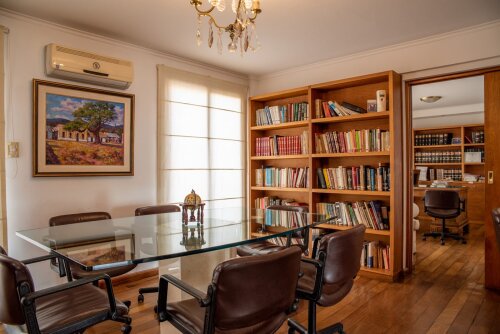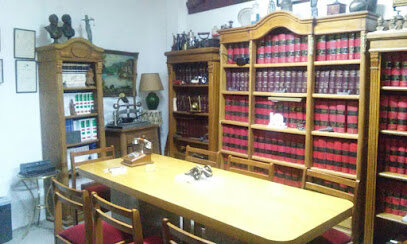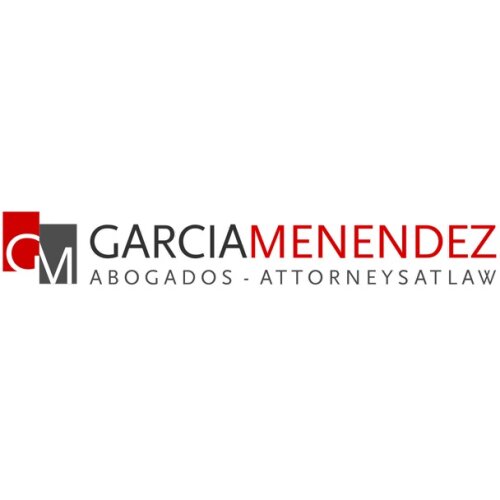Best Commercial Real Estate Lawyers in Argentina
Share your needs with us, get contacted by law firms.
Free. Takes 2 min.
Free Guide to Hiring a Real Estate Lawyer
Or refine your search by selecting a city:
List of the best lawyers in Argentina

About Commercial Real Estate Law in Argentina
Commercial real estate in Argentina encompasses a wide array of business properties, including office buildings, industrial complexes, retail spaces, and land designated for business use. The commercial real estate sector plays a significant role in the nation's economy, driven by diverse industry needs and foreign investment. However, it is governed by a comprehensive legal framework that requires careful navigation. Properties can be subject to various laws pertaining to zoning, taxation, environmental regulations, and more.
Why You May Need a Lawyer
Engaging a lawyer is crucial in numerous scenarios within the commercial real estate sector in Argentina. Potential situations include:
- Negotiating and drafting lease agreements for commercial properties.
- Conducting due diligence on property title and history before purchasing a property.
- Navigating local zoning laws and obtaining permits for property development.
- Resolving disputes related to property boundaries, tenant issues, or contract breaches.
- Advising on tax implications and incentives associated with commercial properties.
- Facilitating transactions involving international investors.
Local Laws Overview
The legal landscape for commercial real estate in Argentina involves several key components:
- Property Law: Governed by the National Civil and Commercial Code, which regulates property rights and transactions.
- Zoning Regulations: Local municipal codes dictate land use, affecting what activities can be conducted on a property.
- Environmental Regulations: Laws aimed at protecting the environment can impact property development and use.
- Taxation: Includes property taxes, income tax on rental income, and VAT on property sales and services.
- Foreign Investment Laws: Specific regulations that apply to non-resident investors interested in the commercial real estate market.
Frequently Asked Questions
What is the process for buying commercial property in Argentina?
The process involves due diligence, offer and acceptance, drafting a purchase agreement, and finalizing the transaction through a notary public.
Can foreign investors purchase commercial real estate in Argentina?
Yes, foreign investors can purchase property, but they must comply with regulations pertaining to foreign ownership and ensure proper registration.
What are the typical costs involved in a commercial real estate transaction?
Costs may include legal fees, notary fees, taxes (such as transfer tax), and real estate agent commissions.
How are commercial leases structured in Argentina?
Commercial leases are typically long-term, extendable, and subject to negotiation. They may include clauses on rent adjustments and property maintenance responsibilities.
What are the tax implications of owning commercial property in Argentina?
Property owners may face taxes such as property tax, income tax on rental income, and potentially VAT on certain transactions.
Is there a registry for property ownership in Argentina?
Yes, properties must be registered in the Real Property Registry, ensuring legal recognition of ownership.
What zoning restrictions might affect my commercial property plans?
Zoning regulations vary by municipality and can limit the type of activities allowed, building size, and usage of the property.
What steps should be taken during due diligence?
This involves verifying ownership, checking for liens or encumbrances, reviewing zoning regulations, and assessing the property's condition.
What legal protections exist for commercial tenants?
Tenants are protected under lease agreements and the Civil and Commercial Code, which cover rent increases, eviction processes, and property maintenance.
How can disputes between landlords and tenants be resolved?
Disputes can be resolved through mediation, arbitration, or court proceedings, depending on the lease terms and nature of the conflict.
Additional Resources
Consider consulting the following resources and organizations for assistance:
- Argentine Chamber of Real Estate (CAI): For industry information and regulations.
- Ministry of Economy: For details on foreign investment guidelines.
- Local government offices: For zoning and municipal codes.
- Real Property Registry: For property ownership verification.
- Commercial legal professionals and real estate agencies: For personalized advice.
Next Steps
If you require legal assistance in the field of commercial real estate in Argentina, consider taking the following steps:
- Research and contact a lawyer specializing in commercial real estate law.
- Prepare all relevant documents and information about your real estate interests or issues.
- Schedule a consultation to discuss your specific needs and obtain professional advice tailored to your situation.
- Stay informed about ongoing legal changes that may affect commercial real estate in Argentina.
Lawzana helps you find the best lawyers and law firms in Argentina through a curated and pre-screened list of qualified legal professionals. Our platform offers rankings and detailed profiles of attorneys and law firms, allowing you to compare based on practice areas, including Commercial Real Estate, experience, and client feedback.
Each profile includes a description of the firm's areas of practice, client reviews, team members and partners, year of establishment, spoken languages, office locations, contact information, social media presence, and any published articles or resources. Most firms on our platform speak English and are experienced in both local and international legal matters.
Get a quote from top-rated law firms in Argentina — quickly, securely, and without unnecessary hassle.
Disclaimer:
The information provided on this page is for general informational purposes only and does not constitute legal advice. While we strive to ensure the accuracy and relevance of the content, legal information may change over time, and interpretations of the law can vary. You should always consult with a qualified legal professional for advice specific to your situation.
We disclaim all liability for actions taken or not taken based on the content of this page. If you believe any information is incorrect or outdated, please contact us, and we will review and update it where appropriate.
Browse commercial real estate law firms by city in Argentina
Refine your search by selecting a city.















